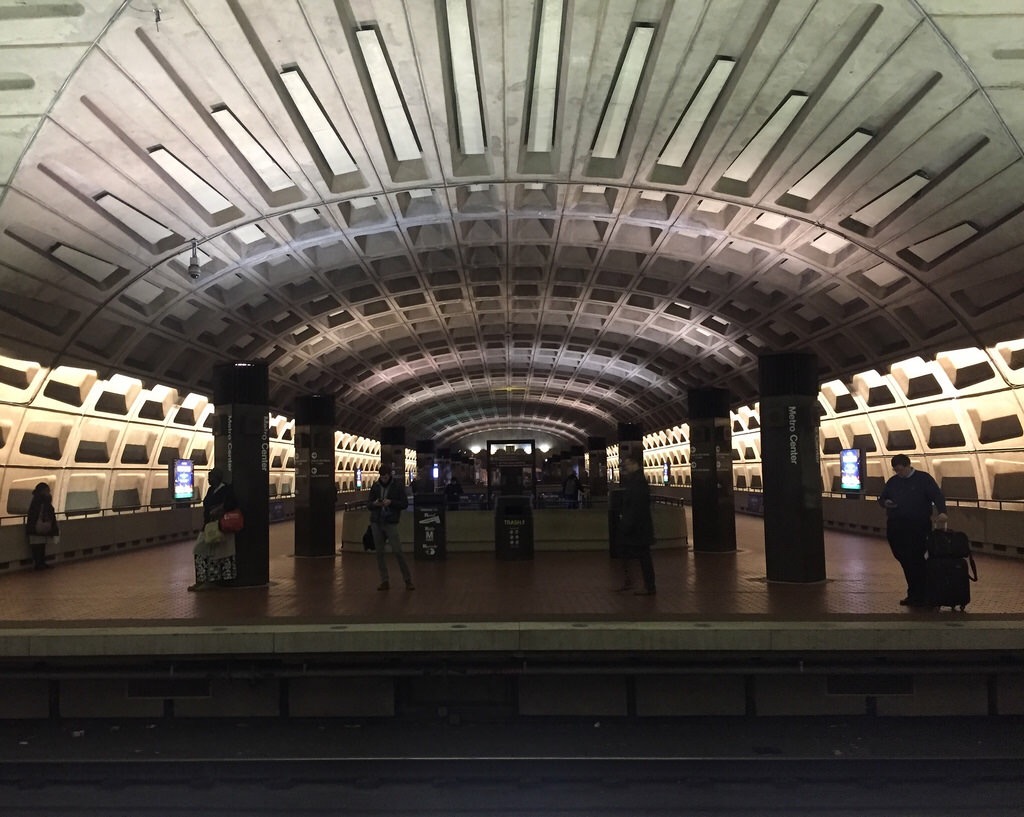Paul Jacob
“The D.C. Council gave final approval this week to a measure decriminalizing Metro fare evasion,” The Washington Post reports, “paving the way for fare-jumping to become a civil offense punishable by a $50 fine in the District.”
Talk about stopping crime in its tracks. Jumping the turnstile to ride the subway for free will no longer be classified as a “crime.”
Problem solved?
Nassim Moshiree, the policy director for the local ACLU, declared it “a significant victory for criminal justice reform here in the District.”
By all means, break out the champagne.
However, officials with the Washington Metropolitan Area Transit Authority, WMATA, commonly known as Metro, offered “staunch opposition” to the council’s move, contending “that lessening the penalties would only exacerbate the problem and lead to more crime.”
“We have a big problem with fare evasion at Metro,” said Councilmember Jack Evans, who also serves as board chairman of Metro, adding that scofflaws will quickly figure out the “civil citation . . . is largely unenforceable.”
Non-paying riders annually cost the bus and subway system in the nation’s capital $25 million. The worst bus route “has had 560,000 incidents of fare evasion since January, nearly 37 percent of its 1.5 million trips,” informs the Post.
Wonder how safe it is to ride a bus where more than one in three riders hopped on board without paying?
The Metro board explained to the council that only “8 percent of fare evasion stops lead to arrests according to current figures,” the Post recounts, and “most of those arrests resulted not from the initial fare evasion charge but rather from existing warrants for other offenses.”
On the other hand, supporters of the council’s fare-jumping rapprochement contended that “decriminalization was an important step toward addressing disproportionate policing of African Americans who use the transit system.” They pointed to a recent report by the Washington Lawyers’ Committee for Civil Rights and Urban Affairs, which found that “91 percent of Metro Transit Police citations and summons for fare evasion were issued to African Americans.”
“I’m sad that’s Metro’s losing money,” offered Councilmember Robert White Jr., “but I’m more sad about what’s happening to black people.”
“I want a high-functioning Metro system,” Councilmember Charles Allen likewise argued, “but I want a fair system.”
Whether the 91-percent figure stems from racist enforcement is not at all clear. That same report indeed “suggested targeted enforcement” against blacks, but Metro countered that the train stations mentioned as recipients of greater police presence were the busiest and demanded the most policing.
Metro as a racist, anti-black enterprise is hardly self-evident. Its workforce is 73 percent black, while the city of Washington is 47 percent black, a plurality, and blacks make up about 25 percent of the greater metropolitan area serviced, which includes parts of Maryland and Virginia. Sure, Metro has been the subject of countless charges of racial discrimination, but those have notably alleged discrimination against Hispanics or whites.
“White and Hispanic employees who allege discrimination have found a deaf ear at Metro’s civil rights office,” noted a 2012 Washington Times exposé, “whose 17 employees are black.”
Increasingly, there need be no specific determination of racism present to decide some policy or law is racist, merely that it produces a racially disparate impact. As, apparently, enforcing fare evasion does. Still, there is a difference between the two.
The last step for this legislation? Mayor Muriel E. Bowser can sign or veto, though the council will likely override a veto. “We do not believe,” a statement from the mayor’s office read, “the legislation makes us safer or stronger . . .”
But said statement also related, “nor do we anticipate a veto.”
That’s the political courage Washingtonians have come to expect.
Until the council’s change takes effect making fare evasion merely a civil matter with at most a $50 fine, the current “criminal” penalty remains a fine of not more than $300 and ten days in jail.
Penalties can be too severe or too severely applied. And enforcement can certainly be racially biased. But stealing transportation services is a crime. Pretending otherwise is not a victory.
December 9, 2018
Image courtesy of Adam Fagen, Creative Commons license.

